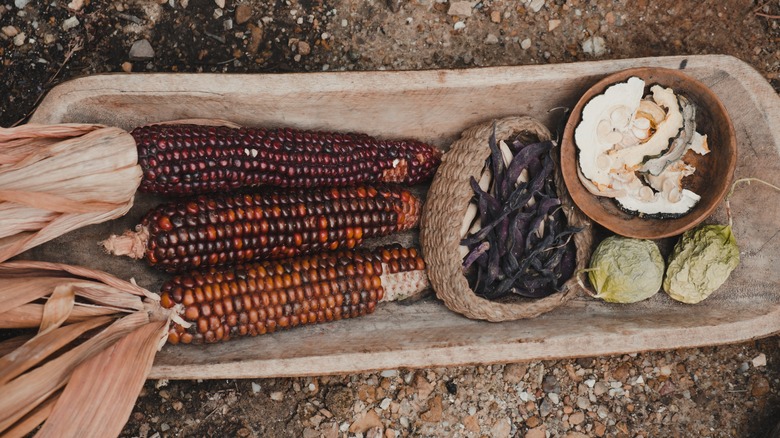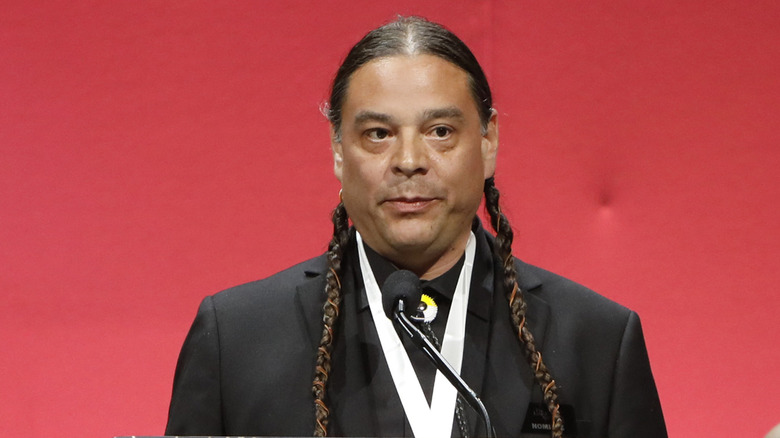How A James Beard Award Winner Plans To Bring Indigenous Foods Back To Tribal Communities
We may receive a commission on purchases made from links.
Even though Indigenous Americans were here long before the European settlers came, it's rare to find the food of the Indigenous tribes when you go out to eat (unless you specifically look for it). What we consider to be classic American food is generally food that is rooted in European food culture. For instance, Parade notes that hamburgers actually originated in Hamburg, Germany, and the BBC divulges that the classic side of fries came from Belgium.
So why isn't there more Indigenous American food in America? The Atlantic notes that our food culture has been subtly moving that direction for the last few years. The whole farm-to-table movement and eating locally sourced ingredients is in alignment with the hallmarks of Native food culture, but when it comes to actually seeing individual tribes sharing their recipes, it's rare to encounter.
The Atlantic explains that part of this is cultural, and part of it is monetary. Outside of a relatively small faction of adventurous eaters, most people tend to stick to the foods they know. One chef is hoping to change that.
Enter Chef Sean Sherman
A member of the Oglala Lakota tribe in South Dakota, Minneapolis-based Chef Sean Sherman sees a future where Indigenous restaurants are as commonplace as the sushi bars, diners, pizza places, and taco trucks that we see in the U.S. today (per Taste of Home). Sherman got his start in restaurants at age 13 as a dishwasher and quickly rose to executive chef. His mission has been to raise awareness about Indigenous foods and ingredients, but Taste of Home notes that learning about his ancestors' foods required significant research. He had to do a deep dive on the plants and cooking techniques, and later wrote the The Sioux Chef's Indigenous Kitchen to share his discoveries. His book won the James Beard Award in 2018.
One of the ways Sherman hopes to pique interest of Indigenous American food culture is through channels that Americans are familiar with. He notes in Minnesota Monthly that Thanksgiving is the perfect time to dig into Indigenous cuisine, because most of what goes on the Thanksgiving table is traditionally Indigenous food. Sherman is also focused on his nonprofit's effort to run a restaurant model called Indigenous Food Lab, through which he hopes to bring Native ingredients, food, and agricultures back to tribal communities in the U.S. (via Taste of Home). He hopes this shift will help curb food-related illnesses prevalent in these communities such as obesity, heart disease, and diabetes. Here's hoping true American food becomes as commonplace as that burger and fries.

